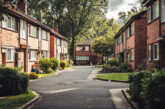
Nick Rutter, Chief Product Officer at FireAngel, explores how connected fire safety solutions can not only overcome the issues posed by a lack of physical access to a property, but also provide a future-proofed approach to asset and risk management across an entire housing portfolio.
As electrical engineers continue to recommence essential works following months of disruption, the social housing sector is faced with the challenge of understanding the level of risk each resident/property now poses, particularly with regard to fire safety.
The ability for contractors to gain access to a property to conduct necessary maintenance checks and repairs has significantly reduced over the last number of months, as many vulnerable and elderly residents have shielded from the virus and refused other individuals from entering their home.
As professionals now work to overcome the backlog of repairs and complete a build-up of necessary maintenance checks, concerns are focused on ensuring the safety and wellbeing of both themselves and residents to mitigate any potential spread of the virus.
This is combined with the ever present threat of the rate of infection rising, which would once again place an immediate and substantial halt on essential maintenance due to the inability for engineers to gain physical access to a property, potentially increasing the fire risk level for some residents.
So, how can the industry think ahead to overcome access and maintenance issues, successfully future-proof installations and gain understanding of the levels of fire risk within a social housing portfolio?
In short, remote real time monitoring provides the answer.
Risk and overhead reduction
Remote monitoring capabilities are not only offering a wide range of benefits for existing social housing portfolios, they’re also transforming the future of fire safety and paving the way for a new generation of social housing digital developments that place IoT at the core of their construction.
The activation of a connected cloud-based gateway allows instant remote real time monitoring of smart RF smoke, heat and carbon monoxide (CO) alarms, enabling social housing providers to achieve full traceability, audit and compliance management across an entire housing portfolio by simplifying the monitoring of alarm networks across every property.
Through a connected system that features a solution like FireAngel Predict technology, providers can further futureproof and enhance their fire and CO protection by receiving an overview of fire risk across the entire property portfolio to help pinpoint increasing risk levels and enhance overall efficiency. This subsequently supports a long-term reduction in overheads as assets are applied in the most efficient way.
Through the use of a connected gateway, instant access to vital information, including alarm diagnostics for every alarm across the network, can also be activated, ensuring 24/7 legislative compliance, whilst the patented Predict technology automatically provides the ability to pinpoint and manage risk remotely.
Properties are also future-proofed against potential regulatory changes as the system offers the ability to be adapted at a later date to meet a change in resident risk, which may require enhanced safety systems.
 The ability to view the performance of each alarm in real time also aids proactive asset maintenance as social landlords can adopt a targeted approach to the application of resources, subsequently simplifying fire risk management. Providers have instant access to vital information from every alarm across each property, including current status, alarm history, replacement dates and network health.
The ability to view the performance of each alarm in real time also aids proactive asset maintenance as social landlords can adopt a targeted approach to the application of resources, subsequently simplifying fire risk management. Providers have instant access to vital information from every alarm across each property, including current status, alarm history, replacement dates and network health.
The system also delivers complete freedom to accommodate a hybrid network, which supports the specification of mains and battery powered alarms in the same property. This optimises utilisation of existing wiring for mains alarms while the ease of installation of battery powered alarms offers cost and resource savings by reducing the amount of time a contractor spends inside the property.
As connected technology continues to pave the way for fire safety, social housing providers can benefit from IOT and connected fire safety technologies such as Predict, which uses AI to bridge the gap in communication between a property and its residents.
Social skills
Latest research by the Local Government Association (LGA) found that over 100,000 affordable homes will need to be constructed each year as part of the national recovery from the virus, and the ‘new generation’ of social housing aims to provide residents with affordable, high quality homes that are fit for purpose.
The social housing sector has the opportunity to take an alternative approach to the fire safety installed within future properties by procuring intelligent connected solutions that offer the ability to be cost-effectively upgraded and adapted at a later date to meet the individual needs of each resident. This can be achieved by utilising a Connected fire safety system that features patented Predict technology.
This AI driven approach can provide automatic stratification of risk across an entire housing stock, saving providers valuable time and money, whilst also ensuring compliance with current and future legislation to deliver residents with the highest levels of fire and CO protection.
As the pandemic continues to have a significant impact on the social housing sector, not only nationally but globally, electrical engineers can aid their clients in taking an alternative approach to the provision of fire safety solutions to successfully streamline their asset management through the facilitation of remote real time monitoring.
Watch a case study video of Tyne & Wear Fire & Rescue’s experience of using FireAngel Connect by clicking here








